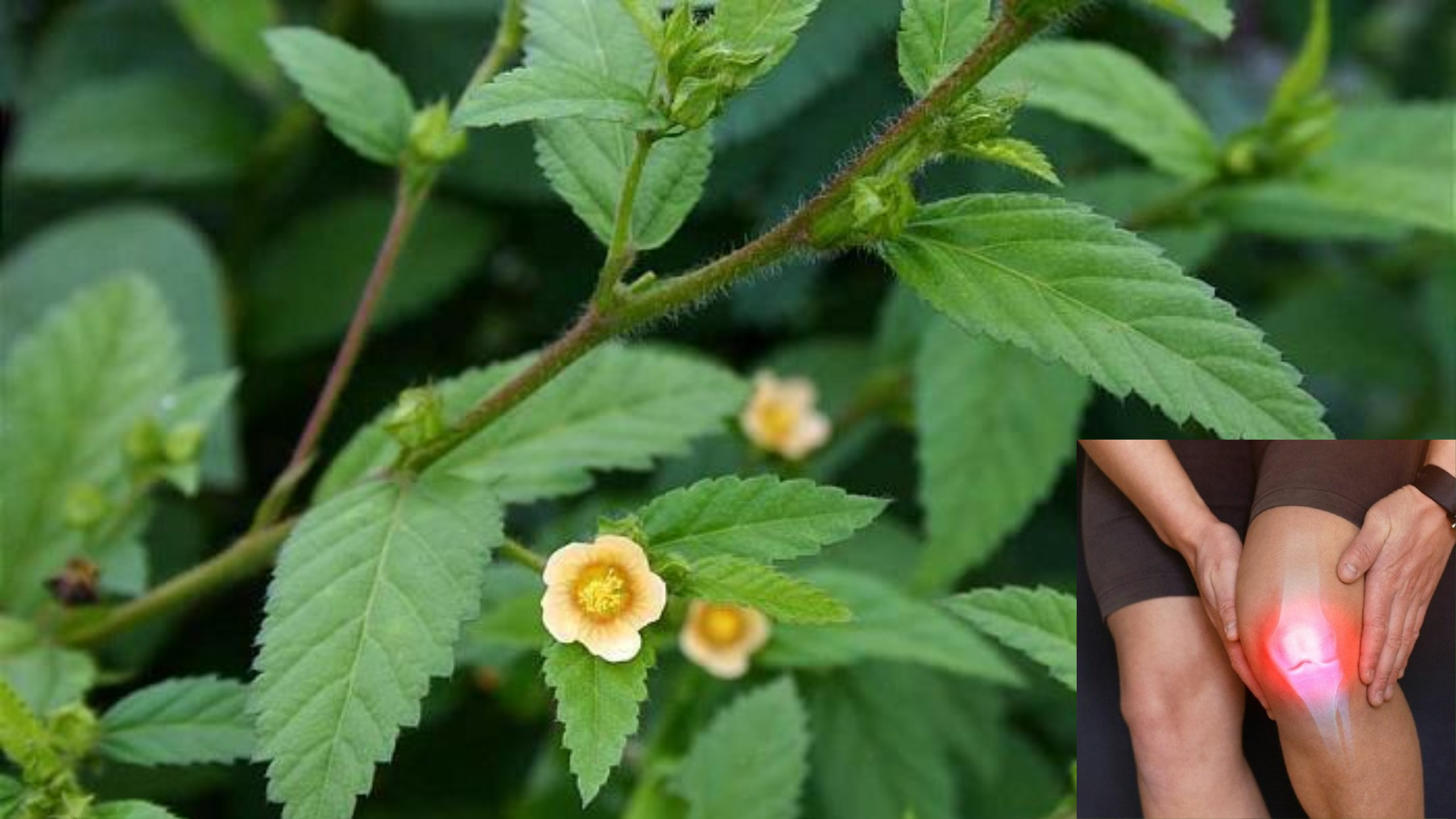If you’ve ever encountered a resilient, fast-growing plant that seems to thrive in almost any condition, you might have come across what’s commonly called Stubborn Grass. Though many consider it an invasive weed that’s difficult to control, traditional medicine has long recognized its potential health benefits. One such plant known scientifically as Sida acuta and popularly referred to as Common Wireweed or Broomweed is a perfect example of this hardy, adaptable plant.
In this article, we’ll explore 10 incredible health benefits of Stubborn Grass, along with important considerations about its potential side effects. Whether you’re curious about natural remedies or looking for new herbal options, understanding this plant can help you make informed choices.
1. Anti-Inflammatory Power
One of the most renowned benefits of Stubborn Grass is its anti-inflammatory properties. Traditionally, it has been used to reduce swelling, pain, and inflammation throughout the body. The plant contains bioactive compounds that might help mitigate conditions like arthritis, muscle pain, and joint stiffness. If you suffer from chronic inflammatory diseases, incorporating this plant into your remedy arsenal could offer some relief—always under the guidance of a healthcare professional.
2. Strengthening the Immune System
The plant is rich in antioxidants and flavonoids, which are compounds known to bolster the immune system. These antioxidants help combat free radicals—unstable molecules that can damage cells—and thus support your body’s defenses against infections and illnesses. A stronger immune system means better resilience and overall well-being, especially during cold seasons or stressful times.
3. A Natural Approach to Pain Relief
Many cultures have used Sida acuta as a natural analgesic to help alleviate headaches, toothaches, and body pains. The leaves can be brewed into a soothing tea or applied directly to sore areas as a poultice. This natural pain-relief approach can be a gentle alternative to synthetic medications, especially when pain becomes persistent.
4. Supports Wound Healing
Thanks to its antibacterial and antimicrobial properties, Stubborn Grass can be used topically to promote wound healing. Crushed leaves are sometimes directly applied to cuts, burns, or sores to help prevent infections and accelerate recovery. This traditional use highlights the plant’s potential as a natural remedy for minor injuries.
5. Respiratory Health Aid

Traditional medicine often uses this plant to treat respiratory issues such as coughs, colds, and bronchitis. Its natural expectorant qualities can help clear mucus from the respiratory tract, making breathing easier and providing relief from congestion.
6. Potential Role in Malaria Treatment
Some preliminary studies suggest that Sida acuta possesses antimalarial properties. In herbal medicine, it has been used to help reduce fever and combat symptoms associated with malaria. While more scientific research is needed, this traditional use indicates its potential as an adjunct in fighting parasitic infections.
7. Improves Digestive Wellness
This resilient plant is believed to aid digestion. Consuming moderate amounts may help alleviate stomach discomfort, including constipation, bloating, and indigestion. It’s thought to have a gentle, soothing effect on the digestive system, making it a natural choice for digestive health.
8. Possible Antidiabetic Effects
Early scientific investigations hint that Sida acuta might help regulate blood sugar levels. This property suggests it could be beneficial for individuals managing diabetes, although comprehensive studies are still underway. If you’re interested in herbal support for blood sugar control, consult your healthcare provider before adding this plant to your routine.
9. Liver Detoxification Support
In herbal circles, Stubborn Grass is sometimes used as a liver detoxifier. It’s believed to assist in removing toxins from the body and improving liver function. Supporting liver health is essential for overall wellness, and this plant’s traditional use makes it worth further exploration.
10. Antimicrobial and Antifungal Qualities
Sida acuta has demonstrated antimicrobial and antifungal effects, making it useful in treating various skin infections and fungal overgrowths. From fungal rashes to skin irritations, this plant offers a natural remedy to combat microbial threats.
Important Considerations: Potential Side Effects
While Stubborn Grass offers numerous health benefits, it’s crucial to approach its use with caution. Like many herbal remedies, it can have side effects, especially if not used properly.
1. Allergic Reactions
Some people may experience skin irritation or allergic responses upon handling or applying the plant. It’s wise to perform a patch test before using it topically to prevent adverse reactions.
2. Digestive Discomfort
Consuming large amounts or long-term use could lead to nausea, diarrhea, or stomach cramps. Starting with small doses helps gauge your body’s response and reduces risks.
3. Blood Sugar Interactions
If you’re on diabetes medication, be aware that Sida acuta might lower blood sugar levels further. This could increase the risk of hypoglycemia. Always consult your doctor before using it if you’re managing diabetes.
4. Pregnancy and Breastfeeding
Limited research exists regarding its safety for pregnant or breastfeeding women. To be safe, it’s best to avoid using this plant during pregnancy or while nursing unless advised otherwise by a healthcare professional.
5. Toxicity in High Doses
High doses or prolonged use can pose toxicity risks, particularly affecting the liver or kidneys. Always use herbal remedies responsibly and seek professional guidance.
Final Words: Use with Care and Caution
This overview of Stubborn Grass highlights its impressive potential as a natural remedy. However, it’s vital to remember that herbal supplements are not substitutes for professional medical advice. Always consult a healthcare provider, especially if you have existing health conditions or are taking medications.
Would you like more scientific references or detailed dosage recommendations? Feel free to ask!
Share this guide with friends interested in herbal medicine and natural health options. Stay healthy and informed!
Note: This article is provided for informational purposes and should not replace professional medical advice. Use herbal remedies responsibly.


I pay a visit daily a few blogs and information sites to read articles or
reviews, but this blog gives quality based writing.